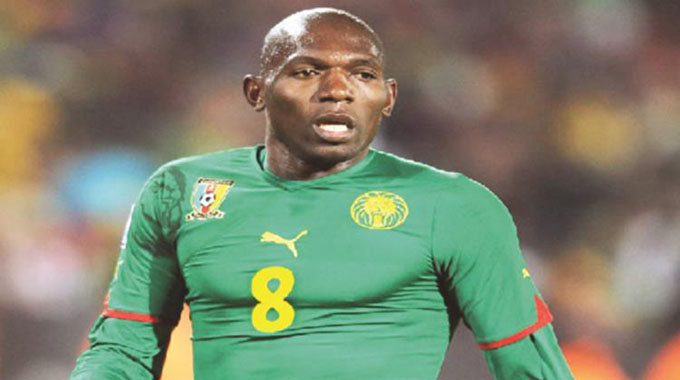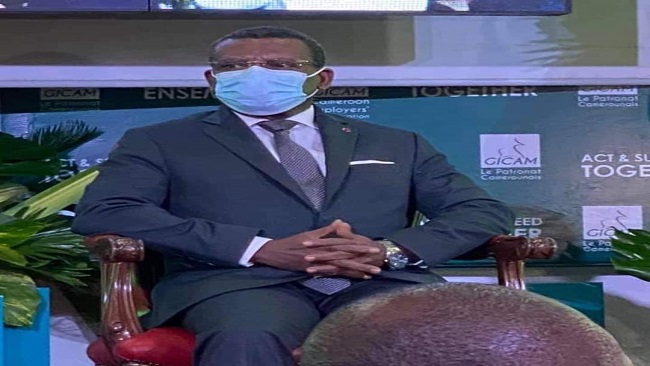Murder of Djibril Dubila:Army plays Pontius Pilate again, conjures counter accusations against victim
It is becoming a rather too recurrent phenomenon for the Head of the Communication Department of the Ministry of Defense, Colonel Cyrile Serge Atonfack to make ambiguous and highly questionable outings to justify human rights violations perpetrated by the military in the restive Anglophone regions. Two days ago, the internet was flooded with images from […]

It is becoming a rather too recurrent phenomenon for the Head of the Communication Department of the Ministry of Defense, Colonel Cyrile Serge Atonfack to make ambiguous and highly questionable outings to justify human rights violations perpetrated by the military in the restive Anglophone regions.
Two days ago, the internet was flooded with images from Below Foncha, in Bamenda of how Government forces had opened fire on a civilian vehicle owned by a certain Djibril Dubila, a native of Bui Division. He was killed in the spree of bullets, sparking a chaos amongst youths in the area as they took to the streets to protest against military brutality in the area, consequently burning down the police checkpoint from where Dubila Djibril was killed.
As expected, a statement came from the Defense ministry to address the latest military gaffe and as usual, couldn’t be more disappointing.
In a communiqué which has been published by the Head of the Communication Department of the Defense Ministry, Colonel Cyrile Serge Atonfack, Dubila Djibril was a wanted fugitive and a relay for the Ambazonian Fighters both in the Country and abroad.
While indeed the communiqué claims that the victims car was only targeted after he tried escaping arrest from the forces of law and order, it adds that he had long been wanted as he had been handed jail term for secessionist activities.
“Initial findings helped to establish with certainty that an arrest warrant had been issued against the deceased on 24th November 2020 by the President of the Bamenda Military Tribunal, following judgment No. 118/2020 of 4th November 2020 sentencing him to 03 years imprisonment and 565, 950 CFA Francs in fines and accumulated damages, for inciting secession and issuing conditional threats.”
The communiqué also ambiguously claims that the victim had been pretending to be a businessman when indeed “he was in fact the main local relay and hub of certain secessionist terrorist leaders of the Diaspora in the NKWEN sector (Bamenda 3). He had been involved in several kidnappings with ransom demand, as well as numerous cases of conditional threats,” it claimed.
It is equally insinuated that he was the kingpin of a scamming cartel in Bamenda which was involved in multiple scamming activities in the town.
This latest outing by the Defense Ministry, much like its other outings, lacks a lot of substance and proof to them to adequately justify military excesses. There has been little mention of the human rights violations carried out by the military.
Turning the victim to the aggressor
Colonel Cyrill Serge Atonfack’s latest response bears so many striking similarities to that which was published when Buea based Journalist, Samuel Wazizi was announced dead in detention, 10 months after arrest.
The Head of the Defense Ministry’s Communication unit then, told the media that Samuel Wazizi was an agent of the Separatist fighters, who spread propagandist rumours, delivered threats and harboured separatists.
Reports of excessive tortures were quashed by Colonel Atonfack, saying he was well handled and that he died at the Yaoundé General Hospital of a severe sepsis rather than torture.
He also contradicted reports that claimed the journalist had been held incommunicado for over 10 months by saying that the journalist was in the company of his family members during his dying periods, though this was strongly rejected by the victim’s brothers.
It is a similar scenario when an outing was made concerning military killings in Ebam, Nwa, Pinyin and many others. In most of the cases, the Defense Ministry has maintained that any individual killed by the military was either a separatist or one of their spies and mercenaries.
Very little action has been taken to address the growing human rights abuse concerns in the two regions. This has only increased the civilian casualty by Government forces as a greater contingent believe they are infallible once in the region.
This can be clearly seen from another case in Below Foncha which saw a commercial bike rider killed by a force of law and order for having failed to pay 500FCFA bribe. Despite the uproar then, nothing was ever officially said about the officer who had committed this act nor any action taken against him or to render justice to the murdered civilian.

 admin3
admin3 














